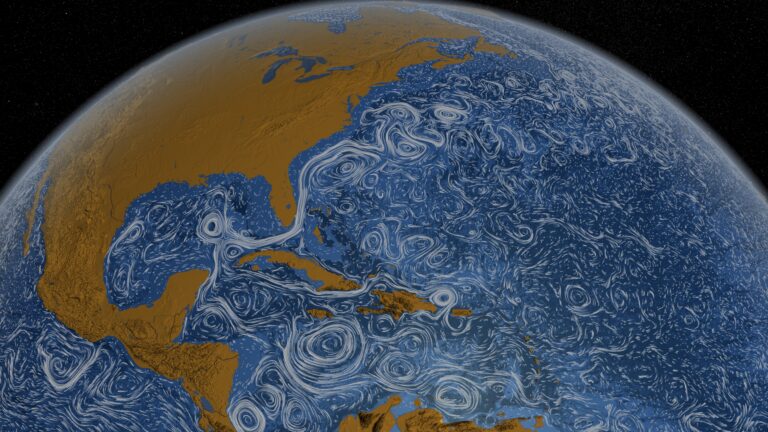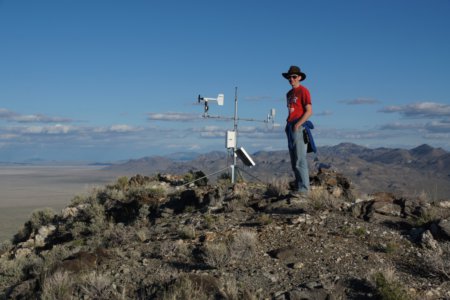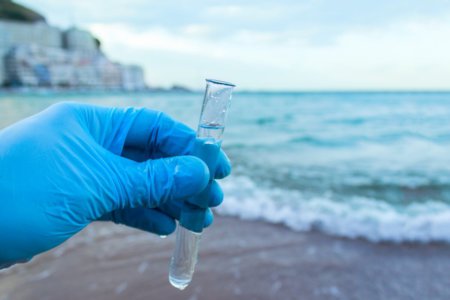
The ocean, covering over 70% of our planet, remains a vast frontier. Oceanography, the science that unravels its mysteries, is a blend of disciplines — maths, physics, chemistry, biology, and geology — that unlock its mysteries and potential. Traditionally, oceanographers specialise in one of four areas: physical (deciphering currents and waves), chemical (analysing the ocean’s composition), biological (exploring the wonders of marine life), and geological (investigating the ocean floor’s secrets).
In 2024, advanced understanding of these areas is more critical than ever. As we explore deeper into resources like oil and gas, particularly in areas like the Gulf of Mexico, the need for skilled oceanographers intensifies. Coastal populations are booming, placing a greater strain on marine ecosystems and highlighting the vulnerability to hazards like tsunamis, hurricanes, and harmful algal blooms. Mitigating these threats requires expertise of the ocean’s dynamics.
The best universities provide you with the knowledge not only to explore and map the ocean depths but also to predict and safeguard this vital resource. If this is something that aligns with your goal, then look no further than these three North American universities offering Oceanography programmes:
Texas A&M University
Texas A&M University’s Department of Oceanography — located on the College Station campus — is a community of discovery, where students and faculty delve into the mysteries of the world’s oceans. Their mission: to explore the past, understand the present, and predict the future of this vast marine realm.
The department offers interdisciplinary programmes, encompassing biological, chemical, geological and physical oceanography. Students can choose from a BS in Oceanography, a BA in Ocean Studies, a Master of Ocean Science and Technology (MOST), or even a combined five-year programme leading to both the BS in Oceanography and the MOST degrees. Take the BS in Oceanography, for example. Students choose to focus their expertise in one of four key areas: Marine Ecosystem Processes, Marine Chemistry and Geochemistry, Ocean Observing Systems and Technology, or Ocean Climate. They also develop valuable skills in data analysis, a crucial tool for oceanographic research. With a student-to-faculty ratio of less than 10 to one, the department creates a personalised learning environment, ensuring each student receives the attention they need.
The BA in Ocean Studies provides students with an interdisciplinary understanding of the oceans and allows them to pair it with a minor from another field to tailor the degree to their needs and the demands of the evolving workforce. All students will develop critical thinking and problem-solving skills.
The best part? Despite being a smaller department, it sits within a large research-intensive university. There are many opportunities to engage, experience, and reflect on materials. Students can join research expeditions, which can take them anywhere from the decks of research vessels to the peaks of the Andes. Closer to home, field trips to Galveston Bay allow students to study the effects of pollution on marine environments firsthand.
Upon completion of the programme, graduates are ready to work in marine operations, environmental monitoring, hazard prediction, insurance industries, energy and transportation industries and climate change impact and resilience, to name a few. Learn more about the Department of Oceanography

The Marine Science programme is jointly offered by the departments of Earth and Planetary Science and Integrative Biology. Source: UC Berkeley/Facebook
UC Berkeley
The UC Berkeley Marine Science programme, offered collaboratively by Earth and Planetary Science and Integrative Biology, takes a truly interdisciplinary approach. Recognising the ocean’s profound impact on Earth’s systems, the programme emphasises understanding the connections between the biosphere, hydrosphere, lithosphere, and atmosphere.
The Marine Science BA programme aspires to provide a rigorous and intellectually stimulating education. Marine Science majors gain a well-rounded education through coursework, hands-on lab training, field research, and library work. They develop expertise in experimental techniques, data analysis, and scientific communication through presentations and reports.
This programme equips students for success in various paths. It provides a strong technical foundation for those seeking careers in Earth, environmental, or planetary sciences. Plus, it cultivates analytical, creative, and critical thinking skills, making graduates adaptable to emerging fields.
The result? Graduates emerge with a broad and deep understanding of the field, ready for diverse pursuits. Many choose top-ranked graduate schools, while others secure employment in professions like geological and environmental engineering and consulting. Some enter public education as teachers, and others leverage their background for careers in public policy, law, or even medicine.

Since the 1940s, the Rosenstiel School of Marine, Atmospheric, and Earth Science has evolved into a top global research institution in oceanography and atmospheric sciences. Source: University of Miami/Facebook
University of Miami
Nestled on the tranquil island of Virginia Key, the University of Miami’s Rosenstiel School of Marine, Atmospheric, and Earth Science stands at the forefront of tackling Earth’s most pressing issues. One of the leading academic oceanographic and atmospheric research institutions in the world, its research is cutting-edge and relevant, focusing on climate change and its impacts on the ocean, atmosphere, and human society.
The Rosenstiel School offers undergraduate degree programmes in Geological Sciences, Marine Affairs, Marine Biology & Ecology, Marine Science (Double Major Programme), Meteorology, and Oceanography. These programmes equip graduates with the knowledge and skills to pursue exciting careers in marine and atmospheric research, policymaking, conservation efforts, environmental law, medicine, or even broadcast meteorology.
For example, the BS in Marine and Atmospheric Science with a major in Oceanography builds a foundation for students seeking further education in graduate programmes, professional schools, or technical careers. The curriculum prioritises small class sizes and encourages strong faculty mentorship.
Undergraduate researchers gain invaluable experience through independent projects supervised by leading scientists. These projects explore areas like air-sea interaction, biogeochemical cycles within the ocean, large-scale ocean dynamics, and the complex relationships between biological and physical processes.
*Some of the institutions featured in this article are commercial partners of Study International










